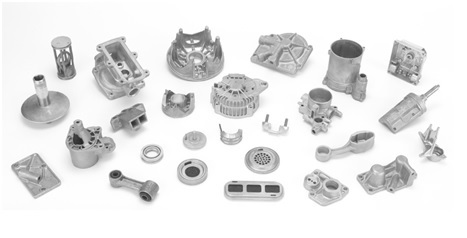Die casting is a popular manufacturing process that involves the use of molten metal that is injected into a mold to produce complex shapes and designs. The die casting process is widely used in various industries, such as automotive, aerospace, and consumer goods, among others. One of the most critical elements in the die casting process is die cast tooling. In this article, we will discuss the importance of die cast tooling in high-quality die casting production.
What is Die Cast Tooling?
Die cast tooling refers to the molds, dies, and tooling used in the die casting process. The tooling is typically made of high-quality steel or other durable materials that can withstand the high temperatures and pressures of the die casting process. The tooling is designed to create the shape of the final product and determine its quality, precision, and accuracy.
Importance of Die Cast Tooling
The quality of the die cast tooling plays a critical role in the quality of the final product. High-quality tooling ensures that the final product is precise, accurate, and of consistent quality. Additionally, high-quality tooling reduces production time and cost as it can withstand more cycles before replacement.
Some of the key factors that make die cast tooling so important in high-quality die casting production include:
1. Precision and Accuracy
Die cast tooling is designed to create the shape of the final product with precision and accuracy. The tooling must be precise and accurate to ensure that the final product meets the required specifications. Any errors or deviations in the tooling can result in defective products, increased scrap rates, and increased production costs.
2. Durability
Die cast tooling must be durable and able to withstand the high temperatures and pressures of the die casting process. Durable tooling can last for many cycles without the need for replacement, reducing downtime, and increasing productivity.
3. Efficiency
Efficient tooling ensures that the production process runs smoothly and without interruption. High-quality tooling can reduce the need for maintenance and repairs, resulting in reduced production costs and increased productivity.
4. Consistency
Consistency is critical in die casting production. High-quality tooling ensures that the final product is consistent in terms of quality, precision, and accuracy. Consistent products result in increased customer satisfaction, improved brand reputation, and increased sales.
Factors to Consider When Choosing Die Cast Tooling
When choosing die cast tooling, some of the key factors to consider include:
1. Material
The material used to make the die cast tooling is critical. The material should be able to withstand the high temperatures and pressures of the die casting process without degrading or warping. Common materials used for die cast tooling include steel, aluminum, and copper alloys.
2. Design
The design of the tooling should be precise and accurate to ensure that the final product meets the required specifications. The design should also take into account factors such as cooling, shrinkage, and draft angles, among others.

3. Surface Finish
The surface finish of the tooling is critical as it can affect the final product’s appearance and quality. The surface finish should be smooth and free of defects such as scratches, pits, or rough spots.
Conclusion
Die cast tooling is critical in high-quality die casting production. High-quality tooling ensures that the final product is precise, accurate, and consistent in terms of quality. Additionally, high-quality tooling reduces production time and costs by reducing downtime and increasing productivity. When choosing die cast tooling, it is essential to consider factors such as material, design, and surface finish to ensure that the tooling meets the required specifications.
-

- Magnesium alloy die-casting parts&components for e-bike
-

- Bicycle Freehub 12/14/16 Inch Children Bike Low Rider Bikes Magnesium Aluminum Alloy Children Bicycle 3-8 Years Old In Stock
-

- Magnesium alloy thixomolding die-casting UAV parts
-

- high precision die-casting steering wheel for automotive
-

- Magnesium alloy die-casting parts&components for e-bike
-

- Magnesium alloy die-casting wheel for ebike

 0086-750-5616188
0086-750-5616188 +86 13392089688
+86 13392089688 sales@zhongmei-tech.com
sales@zhongmei-tech.com







